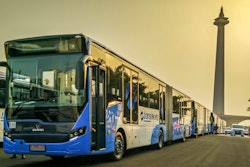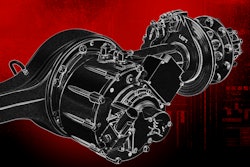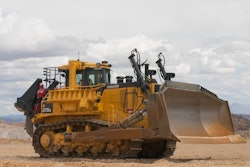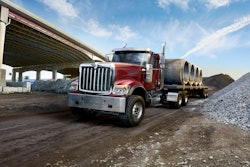Global power and technology leader Cummins Inc. announces it is joining three other global manufacturers as part of an initiative to help 20 large cities around the world address air quality standards and combat climate change. Cummins and the other manufacturers have committed to making it easier for these major cities to purchase buses equipped with low-emissions technologies.
“We are thrilled to be part of this initiative with great partners who are committed to doing the right thing for our customers and the environment,” says Antonio Leitao, Vice President, Europe Area Business Organization, Cummins Inc. “Cummins is the global leader in low-emissions technologies and, as always, we want to help bring the cleanest and best-performing engines and technologies to cities around the globe.”
Cummins offers the broadest portfolio of products to meet every emissions standard anywhere in the world. The company’s range of products for buses include diesel and natural gas options and it has pledged to begin producing electric powertrains for buses by 2019. Cummins is also the global leader in aftertreatment products that have reduced criteria pollutants by 99% during the past several decades.
The company is the top bus engine supplier in the world, shipping engines to more than 140 countries and transporting more than two billion passengers daily thanks to its unparalleled global support network. Cummins produced almost 48,000 clean diesel and natural gas engines in 2016 and now powers nine of every 10 buses in North America.
Nearly all of the cities benefitting from this partnership are in countries that do not have rigorous emissions regulations and do not require the sale of soot-free buses today, including: Abidjan, Accra, Addis Ababa, Bangkok, Bogotá, Buenos Aires, Casablanca, Dar es Salaam, Dhaka, Istanbul, Jakarta, Johannesburg, Lagos, Lima, Manila, Mexico City, Nairobi, Santiago, Sao Paulo, and Sydney. These cities have also committed to ensuring that low-sulfur fuel is made available and that customers and fleets prioritize the purchase of clean-bus technology in order to help manufacturers meet their commitment.
“I welcome the commitment of these bus manufacturers to make cleaner, safer engine technologies available to millions of citizens in the global south,” says C40 Executive Director, Mark Watts. “This is yet another example of cities and the private sector working together to tackle the most urgent challenges that we face.”
Soot-free is defined as including any engine that meets Euro VI norms first established in Europe or EPA 2010 norms first established in the United States, in addition to any diesel engine with a diesel particulate filter, gas-powered engine, or a dedicated electric drive engine. Further reductions in climate impacts of soot-free buses are achievable with low-carbon fuels and engines that deliver the lowest lifecycle greenhouse gas emissions.



















